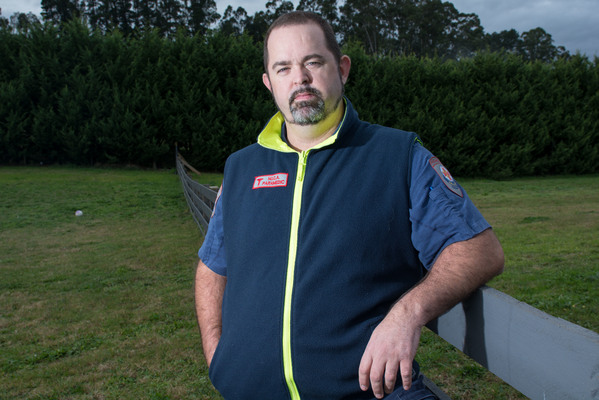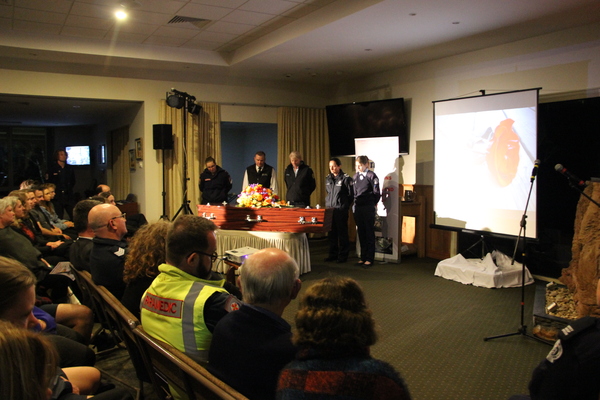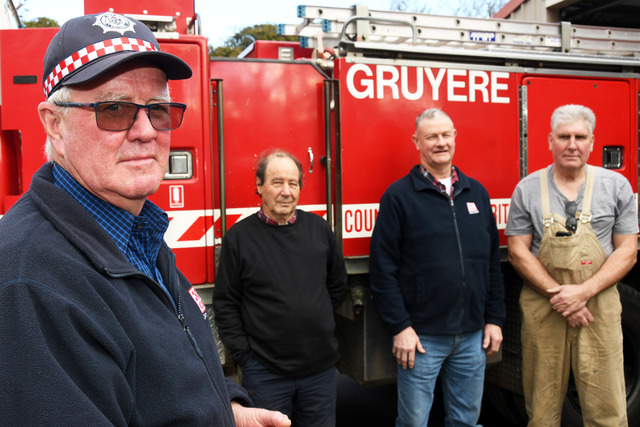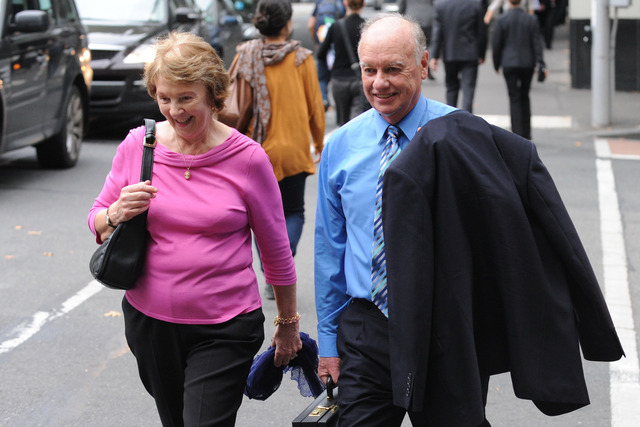Mobile Intensive Care Paramedic Jason Callanan’s contribution to the fifth Teenage Road Information Program (TRIP) at Woori Yallock on Wednesday, 1 August, was a reality check.
Walking among the 500 or so people, and with the sort of crash image you can see most nights on the news up on a screen at the front of the room, he told of what it’s like at a crash scene, and gave an insight into the consequences for the people involved.
TRIP is a combined response by Yarra Valley emergency services – CFA, SES, Police and Ambulance to the tragic loss of young lives on Yarra Ranges’ roads. The target audience is 16 to 25 year-olds and their parents, and there are no apologies for telling it as it is.
“I’m not going to cotton-wool it,” he said introducing himself as a paramedic who had “never been to an accident”.
“I have never been to one accident but I have been to hundreds of crashes,” he said. “Every one I’ve been to, there has been a reason.”
He added … “You can get up and walk out … there’s no harm in doing that.” No-one did.
There were eight people in the car. Four were trapped and four thrown from the vehicle. Three were seriously injured, four relatively OK and one, the driver, was expected to die.
“When I looked at them, so heavily trapped, I said in my head ‘sorry, you’re going to die’.
“I’m going to treat everyone else and if you’re still alive when I get back to you, say half an hour, 45 minutes later, then we will treat you.
“That’s triage; unfortunately that’s the way we work in these cases,” he said.
He spoke of the resources that crash involved. – two MICA units (4 MICA Paramedics, 4 Advanced care ambulances (8 paramedics) 3 fire Units (7fire fighters) 3 police units (5 police officers) just for the first initial response.
“What are the consequences for you,” he said nodding to a person in the audience.
“Your brother who is short of breath having an asthma attack, we can’t get to him in time because we’re dealing with this.
To another. “You’re baby sister who has croup, we can’t get to her in time,” and another, “Your mum or dad who has chest pain, or could be having a stroke, we can’t get to them either, because we’re dealing with this; and it’s something that could have been avoided.”
There’s a weary, matter-of-fact tone in his voice that says this is not a rare experience for paramedics.
Then he talks about the injuries and the repercussions.
A fatality gets headlines in real time and often for years as it goes through court, but injuries that can destroy lives and cost millions of dollars, tend not to make the news.
“First the girl in the passenger seat. She was standing up in the front seat screaming. We tried to treat her and she is punching; had serious concussion but she’s still screaming because she’s broken both ankles and she’s standing on them; all her weight is on her legs.”
Punctured lungs, head injuries, fractured pelvises, lacerated, livers, ruptured spleens – that’s another passenger.
Amputated toe, ruptured spleen, lacerated liver, broken neck and a perforated bowel. “She was ejected from the car,” Jason says.
He explains with no ‘cotton wooling’ what that means to have your poo leaching into your stomach.
The girl underneath the car – the driver – her injuries included most of the above and a spinal injury that left her in a wheelchair.
“The consequences for her are a criminal record, she can’t do what she wants to do, she lives in a nursing home, she needs a team of people to get her around … right down to the fact that she needs someone to wipe her bum for her,” Jason lays it on the line.
“How would you like to have someone have to do that for you, or you to have to do that for someone in your family?
“Simply because she made a mistake of getting in that car … the wrong decision.”
“Any questions?” he asks.
There are none.
Jason also provides this talk among other challenging subjects to high school students through his program called ROADWhyz Victoria?









